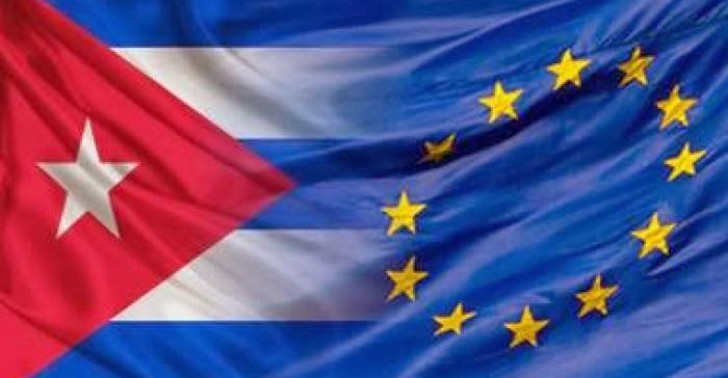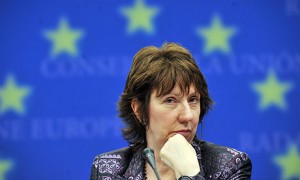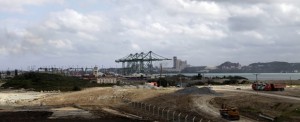
Cuba-EuroUnion: A long road toward dialogue
The road appears to be open. In February, the European Union’s High Representative for Foreign Affairs, Catherine Ashton, invited Cuba to negotiate a “political dialogue” that might put an end to the virtual freeze in relations between the European bloc and the island.

The Cuban response was long in coming but clear: “Cuba welcomes with satisfaction this proposal, from February 10th, from the High Representative, which means the end of the European Union’s unilateral policies on Cuba and accepts to initiate negotiations in this matter,” said Foreign Minister Bruno Rodríguez Parrilla, March 6 in Havana.
Brussels acknowledged it at once. The same day, it issued a communiqué in which it expressed “great satisfaction” over the Cuban response.
The course to be followed toward the normalization of bilateral relations between Cuba and the E.U. seems to be going well. On the European side, they’re interested in a negotiation “on a bilateral accord” without specifying its concrete extent. In addition, they will reprise “as soon as possible” a political dialogue between the two parties “at a ministerial level.”
A long history
But each bilateral relation has its own pace. In the case of the E.U. and Cuba, each step forward takes years. The road had been blocked by two obstacles: one, the so-called “Common Position” that, at the urging of Spain, the European Union adopted in December 1996.
The other obstacle rose with the diplomatic measures adopted by the E.U. in June 2003, in response to the events of the “Black Spring,” when dozens of Cuban oppositionists were arrested.
Neither the Common Position nor the policy of sanctions against Cuba proved to be sustainable long-term. By 2007, the E.U. recognized the need for a change in its policy toward Cuba. The E.U.’s Council of Ministers on June 18 of that year adopted a series of conclusions, nonbinding but significant, that told of a “new situation” on the island, with the transition between Fidel Castro and Raúl.
Those conclusions hinted at a European offer to “reprise an open and broad dialogue with the Cuban authorities in all areas of mutual interest.” The dialogue should proceed “under reciprocal, nondiscriminatory terms and without previous conditions.” The 1996 Common Position had conditioned any bilateral links to advances in human rights by Cuba.
The diplomatic measures decreed against Cuba were lifted in 2008. But, officially, the E.U.’s Common Position remains in effect.
European priorities

Denis Baresch, an adviser to the European Community on the subject of development policies and the author of a study on E.U.-Cuba relations, mentioned in 2008 the priorities that a resumption of bilateral talks should have.
“First, economic and commercial relations. Later, cooperation in its broadest sense, and, third, dialogue and political cooperation,” Baresch wrote in an analysis in his series “Changes in Cuba and the World.”
In the six years since, the list seems not to have changed. A reopening of the E.U.-Cuba dialogue coincides, in fact, with a moment of special economic effervescence on the island. The Cuban state is going through a period of rationalization; the number of small entrepreneurs (“cuentapropistas”) rose from 400,000 in June 2012 to 440,600 in November 2013. Some forecasts say that this year there will be half a million “cuentapropistas” in Cuba.
The export of medicine and biomedical products rose by more than 35 percent in one year. Its volume went from $405 million in 2011 to $550 million in 2012, says a document prepared last December by the economic analysis section of the French Embassy in Havana.

Also, Cuba launched the project of development and investment at the Port of Mariel as an important engine for growth. The total investment is $910 million, 75 percent of which is Brazilian funding.
Particular attention abroad has been created by the reforms involving the importation of vehicles and the liberalization of some red tape that facilitates travel abroad by Cubans.
Who was harmed by the Common Position?
The European Union profits little from the intense economic activity that occurs in Cuba. Between 2007 and 2012, Cuba’s trade with Venezuela rose by 125 percent. Mexico also recorded an important increase in trade with the island, 65 percent, while trade with Brazil rose 20.3 percent in the same period, according to the French analysts.
While that happened in Cuba’s relation with emerging powers in Latin America, trade with the European Union dropped 13 percent between 2007 and 2012.
For that reason, an intensification of dialogue is not only a priority for the E.U. but also an urgent need.
What about human rights? The High Representative for European diplomacy has said that “precisely because we want to support the reforms and modernization in Cuba, we have consistently expressed our concern for human rights, which continue to be at the core of our relationship.”
However, the European communiqué of March 6 stresses that the negotiations will be carried out “in a constructive spirit of mutual respect.”
In diplomatic language, this means that there will be no conflicts or previous conditions in the reopening of negotiations. In fact, the principal objective in the relations between the E.U. and Cuba is to improve commercial links, not — as the European Common Position says — “favor a process of transition toward a pluralistic democracy and respect for human rights and the fundamental freedoms” on the island.
(From the German news agency Deutsche Welle)

